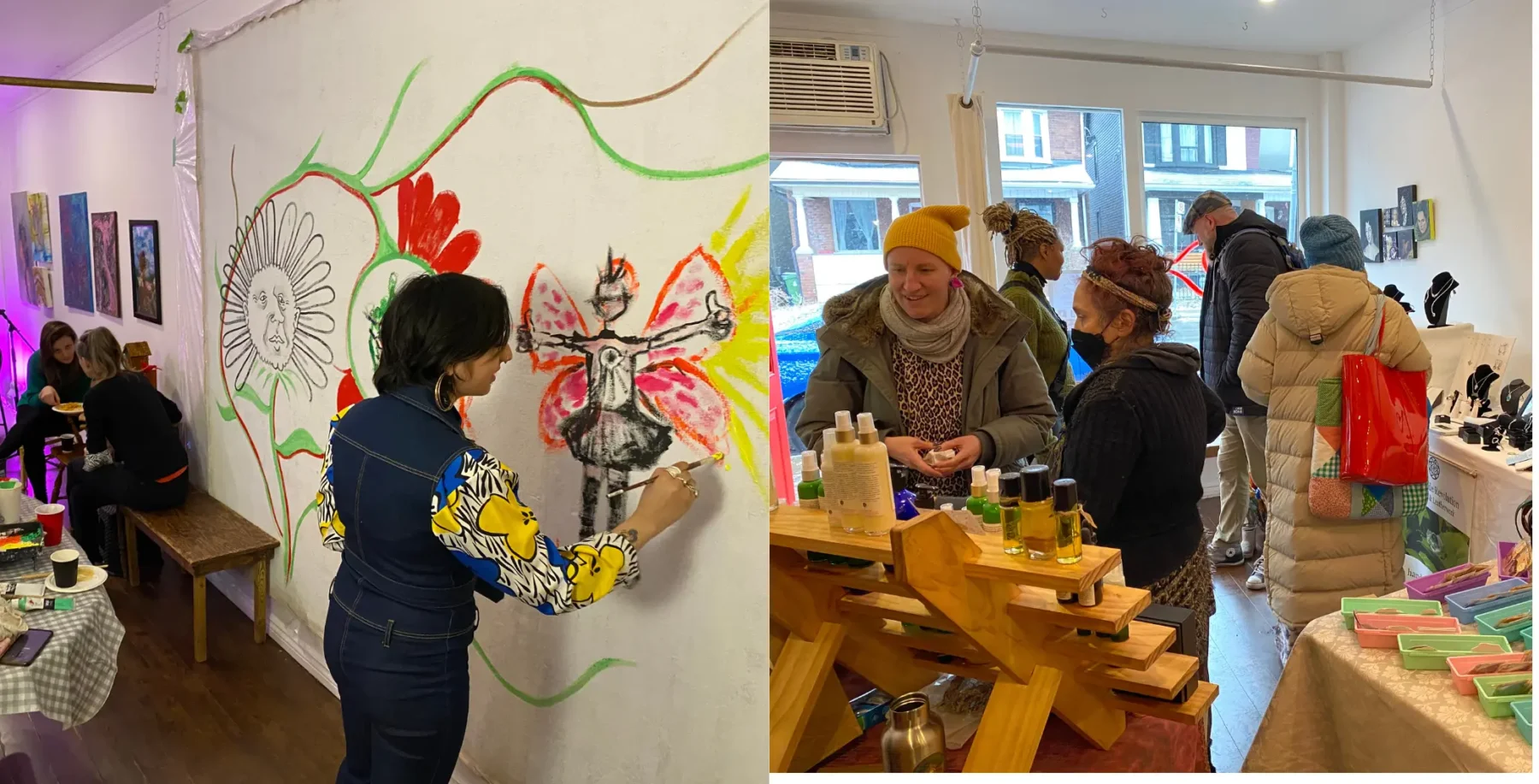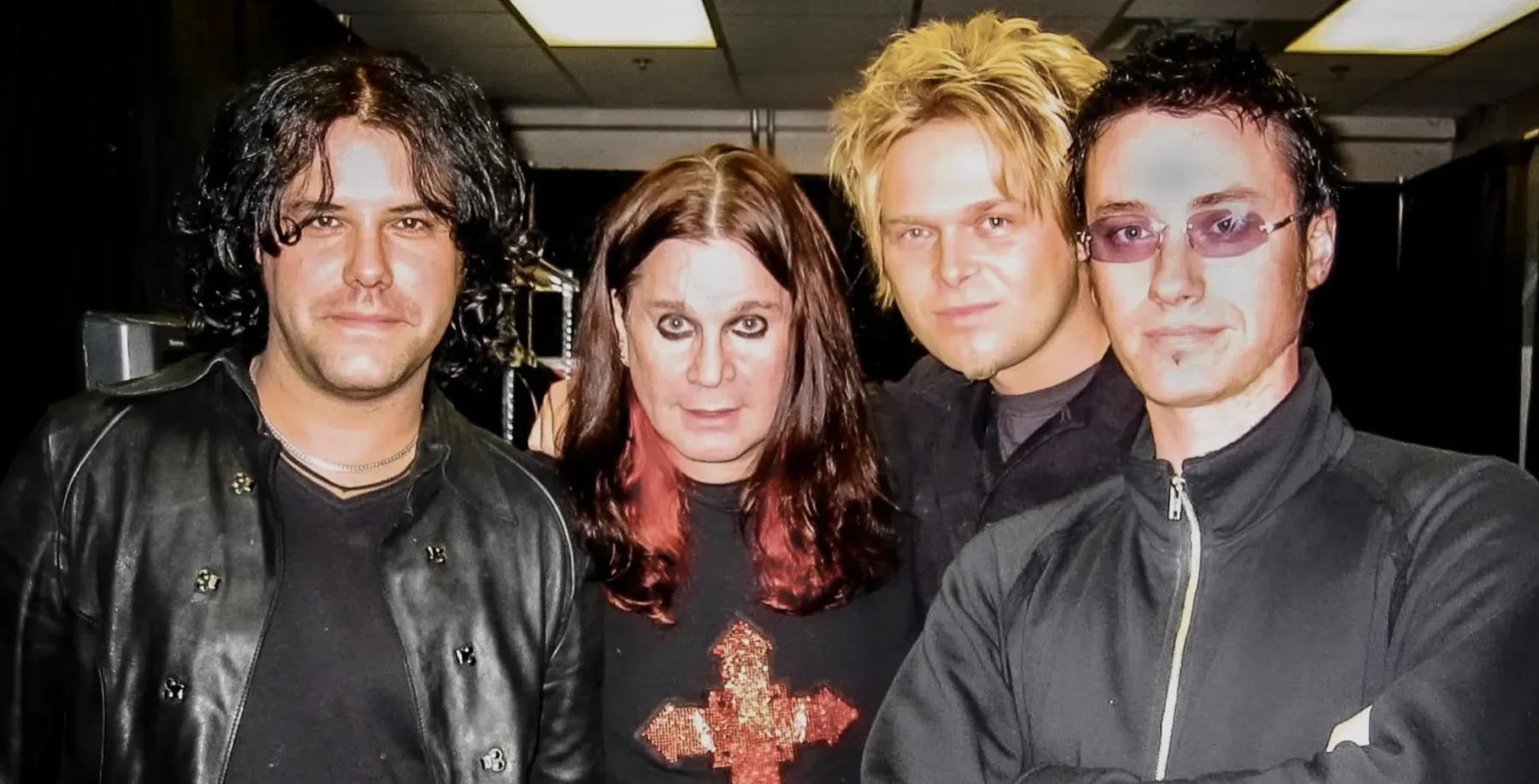
MATTHEW HERBERT at Harbourfront Centre (235 Queens Quay West), Friday (August 25), 9:30 pm. Free. 416-973-4000, www.harbourfrontcentre.com Rating: NNNNN
Matthew Herbert wants to change the way you hear things.
Instead of sampling other people’s albums or regurgitating the standard Roland drum machine patterns, the UK-based electronic musician has made a career out of turning samples of ordinary objects into surprisingly accessible music, embracing chance and happy accidents – he named his label Accidental Records – in an effort to reconnect us to our world.
Fans of avant-garde composers will see a link to John Cage’s ideas about chance and noise, a reference that doesn’t comes up very often in the world of dance music. But then again, Herbert is hardly your standard beatsmith.
He says he reached quite similar conclusions to Cage, but in a more empirical way.
“When we were recording Plat Du Jour, there was a part where we had 3,500 people eating apples together, that crunch,” Herbert explains from a hotel room in Spain during the middle of his European tour.
“When I was putting it together, I had this realization that this was possibly the first time a human has ever heard this sound before.
“First of all, it was such an insane place to reach as a musician, and secondly, it was such an insane place to reach as an artist, and thirdly, it was such an absolutely incredible place to reach as a human – experiencing something for the first time that no one else has ever experienced.
“It began to make me feel like this is how it would be if there were a god or if there were aliens or if someone was listening – that at any one moment, 3,500 people could be biting an apple at the same time.”
“Then I realized that at any given moment there might be 10 million people in Europe closing a car door at the same time, or drinking a cup of tea at the same time. Maybe if you retreated far away enough, instead of hearing a cacophonous noise, there might be some kind of rhythm to it. It might be the most elaborate and intricate symphony of sound coming together, which was a very peculiar moment to reach.”
The experience ended up undermining one of Herbert’s basic assumptions – that sound is random.
“It just isn’t – a car goes past, all of a sudden there’s a bird singing,” he says. “The car going past is determined by the organization of traffic lights, which have been programmed to turn at certain times, in certain rhythms. Birds migrate at certain times of the year, fulfilling various patterns, so what appears to be random could be very considered patterns played over each other.”
Suddenly Herbert shifts his focus.
“At the beginning of the war, when Donald Rumsfeld was talking about shock and awe, the way he was talking about it, the way it was presented to us – all he had to do was call it a symphony and it would have been a piece of music. It was arranged, orchestrated and timed to evoke particular emotions in the viewer, obviously caring very little about what happened on the ground.”
No surprise that Herbert’s suddenly changed the topic to the war. Over the past decade his work has become increasingly concerned with politics and issues. Lyrics in his most recent release, Scale, deal with subjects like war, mortality and the end of oil, using samples of objects such as coffins, gas pumps and an RAF bomber. Perversely, it’s also his most pop album to date, full of disco strings, horn sections and hooks galore.
While the music itself is pleasurable on a purely sensual level, it’s the undercurrent of politics and experimentation that puts him in his own distinct category, far outside the typical concerns of house music and pop. Like the best conceptual art, there’s much to appreciate before you even experience the music. Just reading the list of “instruments” gives you a lot to chew on (if a recording of someone throwing up outside an arms fair can be considered an instrument).
Before I’d actually experienced Herbert’s multi-layered approach to music, friends described his performance at a mid-90s Toronto rave where he constructed strange but danceable house music using only a water bottle, a microphone and a sampler.
Not long afterwards, someone brought me a copy of Around The House, his 1998 debut full-length and possibly the first dance music concept album. The concept was brilliant in its simplicity – house music made out of household objects. Even before listening to it, you couldn’t help but be charmed by his playful and adventurous spirit.
Upon hearing it, though, the concept was quickly forgotten in the irresistibly engrossing music – intimate, romantic and gentle in a way that electronic music rarely is full of rich melody and centred around long-time collaborator (and Herbert’s better half) Dani Siciliano’s jazz-inflected singing.
That album showed why Herbert – who borrows ideas and methods from high art but presents them with deep respect for the craft of songwriting and musicianship – has a special place in electronic music.
“Art was something that, as a school boy, was portrayed as this separate thing, this thing that you went to galleries to see, as if Van Gogh was better than the guy drawing on the street. There were all these assumptions made about what art is and how art is consumed.
“But considering art in a historical sense, rather than just a visual sense, as I was brought up to, and applying the same thought processes to music was very useful. Why is this piece of music being written? What story is it trying to tell? Who would have played it and how would they have heard it?”
In 2000, Herbert wrote a manifesto for making music, PCCOM (Personal Contract For The Composition Of Music), that offered a set of rules designed to keep him honest, much like Lars von Trier’s Dogme 95. There could be no sampling of other people’s music and no synthetic versions of real instruments. Lists of equipment and sound sources had to be made public, and other stipulations were designed to encourage accidents and randomness.
In a first for Herbert, Scale has a disclaimer admitting that it doesn’t follow all the PCCOM rules.
“I should go back and check, because I’m not completely sure if it actually is one of the rules [it’s not], but basically one of the main tenets is that I’m responsible for every recording, and on this one I’m not.
“I tried to make a record where I didn’t record anything myself. All the found sounds were recorded by my studio assistant, which is a metaphor for how we don’t make anything and have no idea where the salmon on the plate or our jeans we wear or the beer in the tavern comes from.
“We’re totally disconnected from the things that surround us. We’re happy to live in a world without having any real understanding of the circumstances of its operation.
“The rules are really there just to encourage me to think and to use my music in a more considered way, instead of, ‘Hey, I’m feeling happy today – let’s write a happy song.’
“I don’t give a crap if Britney Spears is feeling happy today. I give a crap about Israel and Lebanon – it’s absolutely awful what’s happening over there.
“Who cares if Christina Aguilera broke up with her new boyfriend?”
benjaminb@nowtoronto.com
Indie Unlimited awesomeness
With the throng of talented DIY heroes descending on the waterfront this weekend, it might be hard to pick the must-see events on Harbourfront’s Unlimited schedule. Check out NOW’s tips on which acts you definitely shouldn’t miss.
Friday (August 25)
9:30 pm Herbert (UK funk and techno electronic innovator) , Concert Stage
11 pm Singing Saw Shadow Show versus Polmo Polpo (live mash-up w/ behind-the-screens eerie saw slingers and lap steel-laptop experimentalist) , Brigantine Room
Saturday (August 26)
2 pm Great Lake Swimmers (whisper-soft but potent delicate alt-folk reveries) , Concert Stage
3:30 pm Amy Millan (Stars siren unleashes her whiskey-soaked twangy torch singer) , Concert Stage
6 pm The Rat King (local Renaissance chick Maggie MacDonald’s oddball rock opera) , Studio Theatre
9:30 pm The Hidden Cameras (mild-mannered army of subversive symphonic pop) , Concert Stage
11 pm Over The Top fest showcase w/ TORNGAT , They Shoot Horses Don’t They? and Think About Life (all-ages indie impresario Eric Warner brings together Arcade fiddle fire, VanCity oompah octet and Montreal dance-rock cacophony) , Brigantine Room
Sunday (August 27)
3 pm Hylozoists (sprawling Morricone-meets-Mingus multi-vibraphone explosion) , Concert Stage
4:30 pm Bell Orchestre (intricately detailed Prokofievian cinematic chamber music) , Concert Stage












